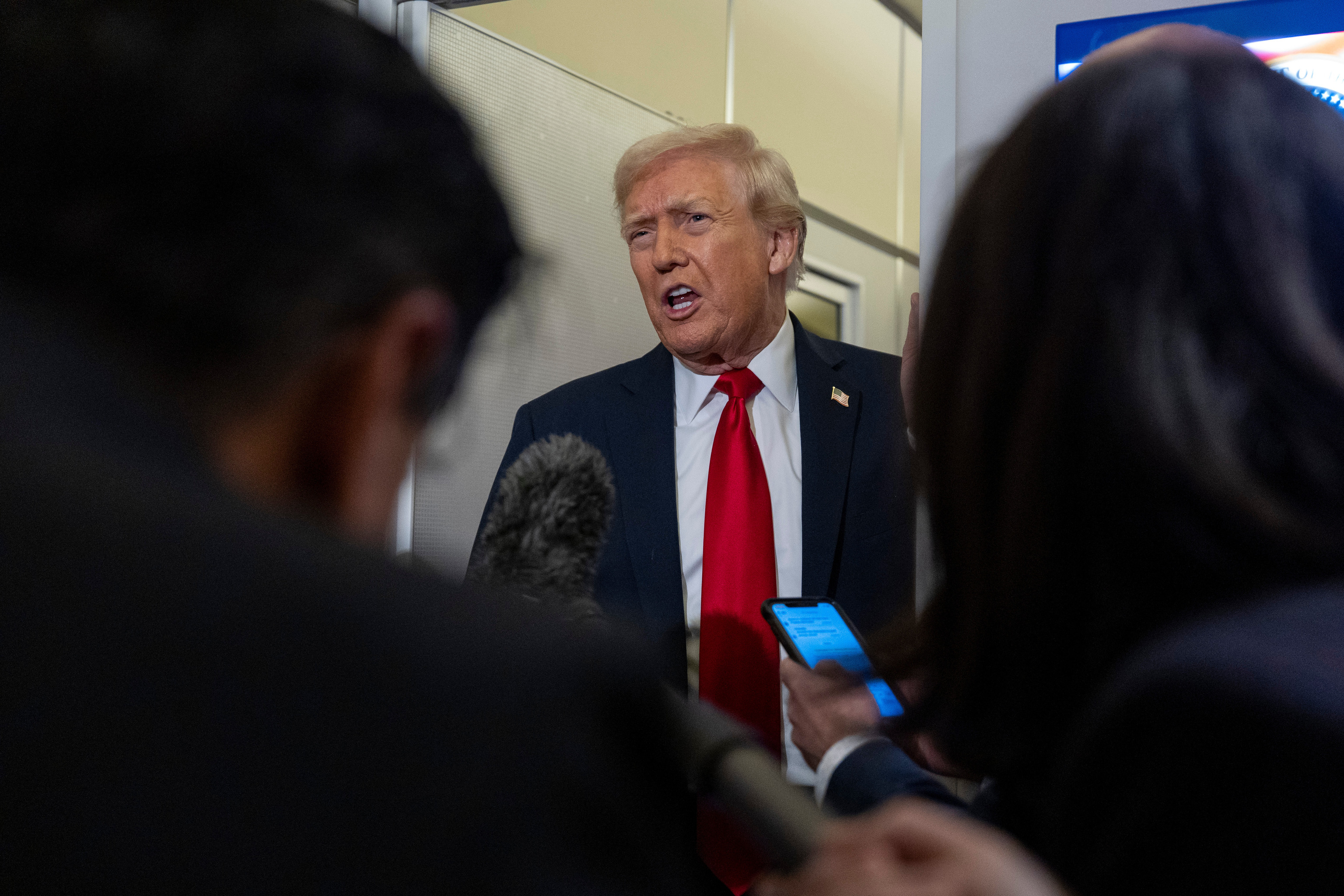The President of the United States, Donald Trump, has instructed his special envoy Steve Witkoff to go to Moscow to meet with Vladimir Putin for the third time to seek his approval for the peace plan with Ukraine. At the same time, Secretary of the Army Dan Driscoll will return to Kiev with the same objective. He stated this on his social media on Wednesday.
"Over the past week, my team has made tremendous progress with respect to ending the War between Russia and Ukraine (A War that would have NEVER started if I were President!). Last month 25,000 soldiers died," Trump wrote. "The original 28-Point Peace Plan, which was drafted by the United States, has been fine-tuned, with additional input from both sides, and there are only a few remaining points of disagreement." he wrote. "I will be briefed on all progress made, along with Vice President JD Vance, Secretary of State Marco Rubio, Secretary of War Pete Hegseth, and White House Chief of Staff Susie Wiles," Mr. Trump said. "I look forward to hopefully meeting with President Zelenskyy and President Putin soon, but ONLY when the deal to end this War is FINAL or, in its final stages"
The international political scene in the past week has been defined by two issues in the U.S.: the possible attack on Venezuela and who drafted the peace plan to end the war in Ukraine. In Washington, everyone seems to agree that at some point the Pentagon will attack Venezuelan bases, airports, or ports that they believe are used for drug trafficking. But at this point, there are so many versions regarding whether the peace plan is of Russian or American origin that even those who wrote it are starting to doubt themselves. In the message, Trump claims that the 28-point document is the work of his team, despite Senator Rubio telling the country's senators over the weekend that it was a Russian document and that the U.S. had nothing to do with it.
It seemed clear that the 28-point document had Russian origins, based on the language, expressions, and content. However, today, Bloomberg has gone further, revealing how Trump's special envoy, businessman Steve Witkoff, worked closely with the Russians, advising them on the best way to present the proposals to the U.S. president.
On October 14, Witkoff, in the excitement of the peace agreement in Gaza, had a phone conversation with Yuri Ushakov, one of the Kremlin's top foreign policy advisors. In it, he not only recommended that Putin request a phone call with Trump before Volodimir Zelenski's visit to the White House at the end of that same week, or that he use the Gaza agreement and the praise for it as leverage. They also directly addressed the controversial plan. "We put a 20-point Trump plan together that was 20 points for peace, and I'm thinking maybe we do the same thing with you," Witkoff told Ushakov, according to the recording of the conversation obtained by Bloomberg.
Journalists like Bulgarian Christo Grozev, threatened by Moscow and an expert in intelligence services, explained these days that he had seen a previous version of the document over a month ago, a Russian document in Russian. At the time of the mid-October conversation, Trump seemed very upset with Russia, and was considering or so he said, providing Tomahawk missiles to Kiev. "During his call with Ushakov, Witkoff expressed to his Russian counterpart his deep respect for Putin and told Trump that he believed Russia had always wanted a peace agreement. 'Zelenskiy is coming to the White House on Friday,' Witkoff said. 'I will go to that meeting because they want me there, but I think if possible, we have the call with your boss before that Friday meeting" Bloomberg reports.
Ushakov wanted to know if it would be "useful" for Putin to call Trump, to which the special envoy clearly responded yes, and that in the conversation Putin should congratulate Trump on the Gaza peace agreement, tell him that Russia supported it, and that he respects the president as a man of peace. "From there, it will be a very good call," Witkoff concluded.
Trump and Putin ended up speaking just two days later, at Russia's request, and the U.S. president described the two-and-a-half-hour conversation as "very productive." He later announced his plans to meet with the Russian leader in Budapest, a summit that, however, has not taken place and it is unclear if or when it will happen.
